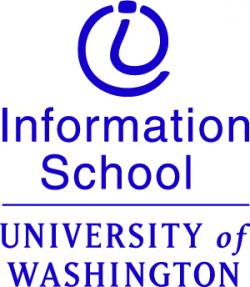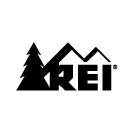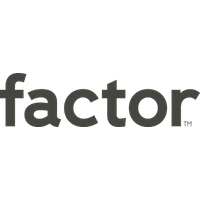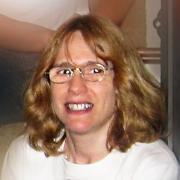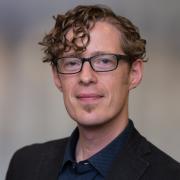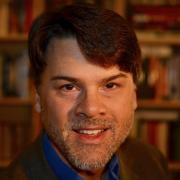WORLD IA DAY - ARCHITECTING HAPPINESS
When information is clear and considerate of the context in which we need it, there is a certain peaceful joy that washes over us. We feel loved or cared for. We crave the feeling that someone carefully considered our needs and expectations.
Whether it is the details that the chef has provided about the seasonal items on her menu or the interface that allows you to see the real time progress of robots racing on the moon, information holds the power to make us happy, gleeful, joyful, giddy, intrigued, relieved, enthralled and many other potent cocktails of emotions.
Our world is increasingly made of information, yet so much of that information is not as clear or accessible as it could be to those it is intended for. Every organization out there seems to say that they want to make their users happy, but who is really delivering on those promises? Who is really architecting for happiness?
On February 21, 2015 we want to ask the world to help us uncover answers to questions we believe to be critical to the future of how we practice information architecture:
- How can information affect happiness?
- How can we best architect structures for information that promote happiness?
- What work are organizations doing to bridge the gaps we face as we transition from a primarily analog to a primarily digital way of life?
ABOUT WORLD IA DAY
World Information Architecture Day is a free one-day conference hosted annually by the Information Architecture Institute and held simultaneously in selected cities all over the world. Each year, a new theme is selected, new cities are added, and our community continues to grow as more people from all across the world join this truly global celebration of Information Architecture.
This year, we’re also partnering with InfoCamp. InfoCamp is your turn to participate! For those who are unfamiliar with InfoCamp, we’ll be flipping WIAD around and asking the audience to share their thoughts and ideas on Architecting Happiness, Information Architecture, or anything else in the realm of Information Science and Technology. After a round of 30-45 second pitches, we’ll post the topics, assign spaces for presentation and discussion, and break up into smaller groups after lunch. Every InfoCamp experience, large or small, brings together a wide range of experts and knowledge seekers, seasoned speakers and novice contributors. We hope you’ll be one of them!
Venue, parking and transit
Metro, Sound Transit and Light Rail will get you to within walking distance of the Impact Hub. If you're driving, check out this Parking Map.
Impact Hub Seattle
220 Second Ave South, Seattle, WA 98104
Map | Directions
Program/Schedule
Registration
Welcome
Architecting Happiness: how happiness data can change our lives, our cities and our economy
(link to slides) (link to Ustream video)
The Happiness Alliance, a national nonprofit based in Seattle, has been providing the Gross National Happiness (GNH) Index to cities, communities, campuses and companies since 2011. The GNH Index is a survey that provides the user with their own unique happiness data results. Over 38,000* people have taken the survey, some reporting that their results inspired them to make significant changes in their lives. During this talk we will explore the definition of happiness, the conception and trajectory of the happiness movement and the opportunities and challenge facing the interface between happiness data and humans. Our plans are to include an audience driven interactive experience with the happiness data and discussion about the future of happiness data for personal, social and economic positive change.
Check out the Happiness Handbook.
Presented by Laura Musikanski
Taming big data with ontologies
(link to slides) (link to Ustream video)
Big data helps us manage data sets that are too large and complex to manipulate or interrogate with standard methods or tools, and significant IT investment is going towards managing and maintaining big data. Ontologies help us easily integrate information from many sources so that essential information is easy to find. Some examples: social data – integrate and summarize thousands / millions of tweets quickly; power grid event aggregation and summary; retail transactions and web searches & visits; pharmaceutical – R&D and Clinical Trials. Join Wendi as she helps us understand the techniques for creating an ontology to manage “big data."
Presented by Wendi Pohs
Break
Desiring Ecologies: Meaning-Making in the Network Wilderness
As networked information ecologies get more complex, interdependent, and unpredictable, designers must focus on the simple, foundational, and emergent. Connected networks are growing beyond our ability to grasp them as a whole. The big changes will catch us by surprise. Our best chance to positively impact these systems is by influencing the creation of effective small pieces that work as part of a holistic ecology.
This talk will explore the changing role of the information architect in the emerging wave of connected computing. It will propose strategies for reframing the way we approach information design in order to better create enriching and empowering experiences for users. We’ll look at examples from technology, cultural movements, and nature in order to frame a set of guidelines for creating systems that desire collaboration and clarity as an innate function of their underlying nature.
Presented by Andy Fitzgerald
InfoCamp Pitches
Lunch
We are pleased to be able to supply lunch (veg and non-veg selections), coffee, tea, water and snacks. I'm afraid we will not be providing fizzy beverages (sodas), but as the event is in Pioneer Square, you'll be able to find what you need without too much difficulty.
InfoCamp Unconference Session 1
(Session 1 of 2; multiple tracks)
The fine folks at InfoCamp are going to run a mini-conference within the conference. This is your chance to pitch a session to your fellow IAs. More details to come.
Break
InfoCamp Unconference Session 2
(Session 2 of 2; multiple tracks)
The fine folks at InfoCamp are going to run a mini-conference within the conference. This is your chance to pitch a session to your fellow IAs. More details to come.
Break
Off-grid Solar: How SunFunder uses information to bring electricity to emerging markets
(link to slides) (link to Ustream video)
Sameer is the Co-Founder and Chief Design Officer of SunFunder. He will talk about how design and information plays a key role in the functioning of their business. He will talk about the information challenges of formalizing this unstructured ecosystem that spans different geographies, populations, solar technologies, business models, politics, regulations and price points. He will also talk about the challenges of extracting reliable information and working in the absence of information due to the low technology, high human capital nature of many of these businesses. Also learn about the new taxonomies they use to help normalize risk assessments across the portfolio and adapting to the dynamic needs and opportunities of the sector. He will also talk about how a simplified vocabulary, simplified design of the technology systems helps SunFunder scale it’s own operations.
And finally he will also talk about story telling, including the qualitative impact of these investments, along with the measurable social and environmental impact that investors care about. When everything comes together, investors are happy that their money was used to bring about measurable, positive change in the world, while earning them a financial return; and at the same time thousands of people around the world end up with reliable access to electricity and lighting and become a part of the emerging solar energy revolution and all the cascading benefits it brings.
Presented by Sameer Halai
Closing and Thanks
Happy Hour
Sponsored by General Assembly.


